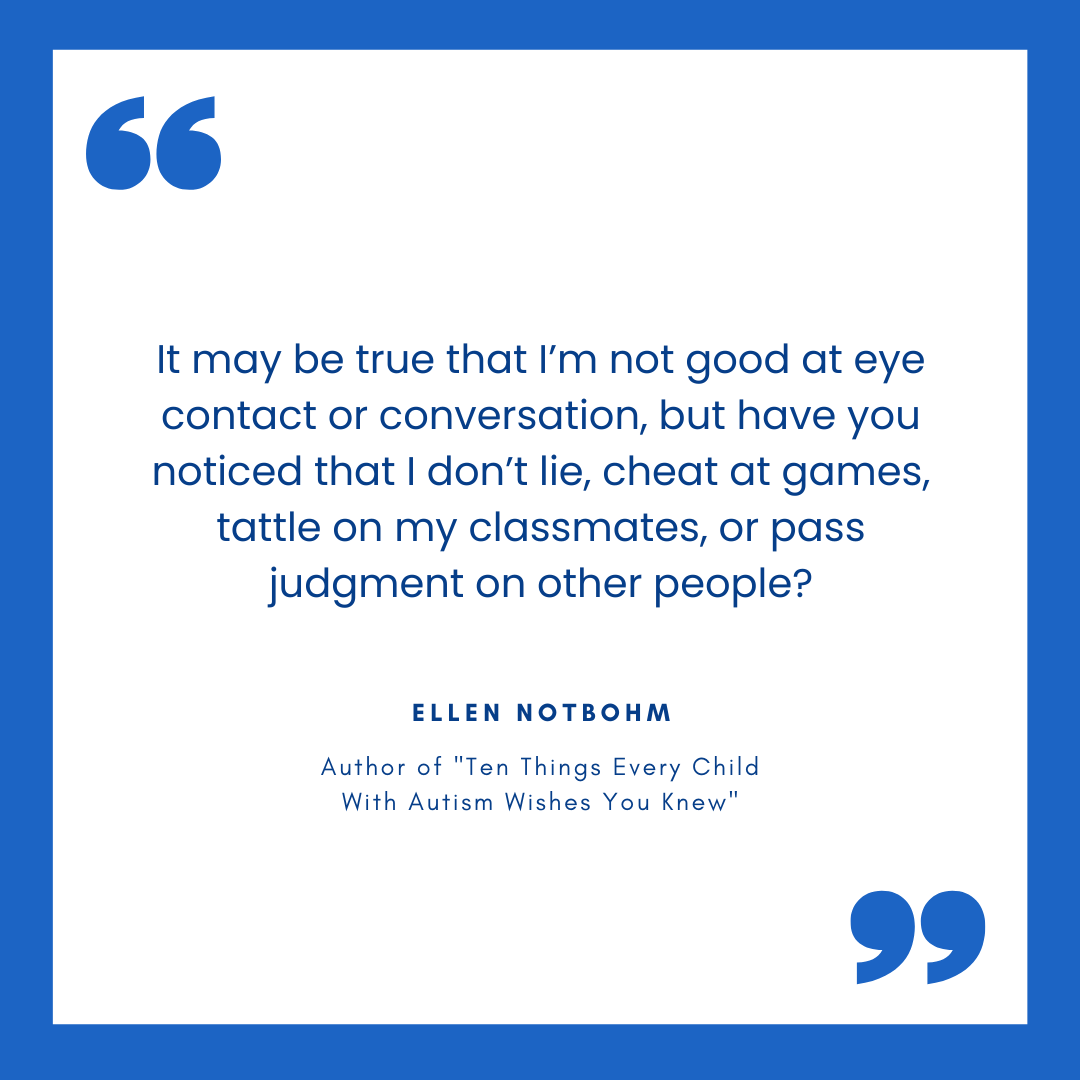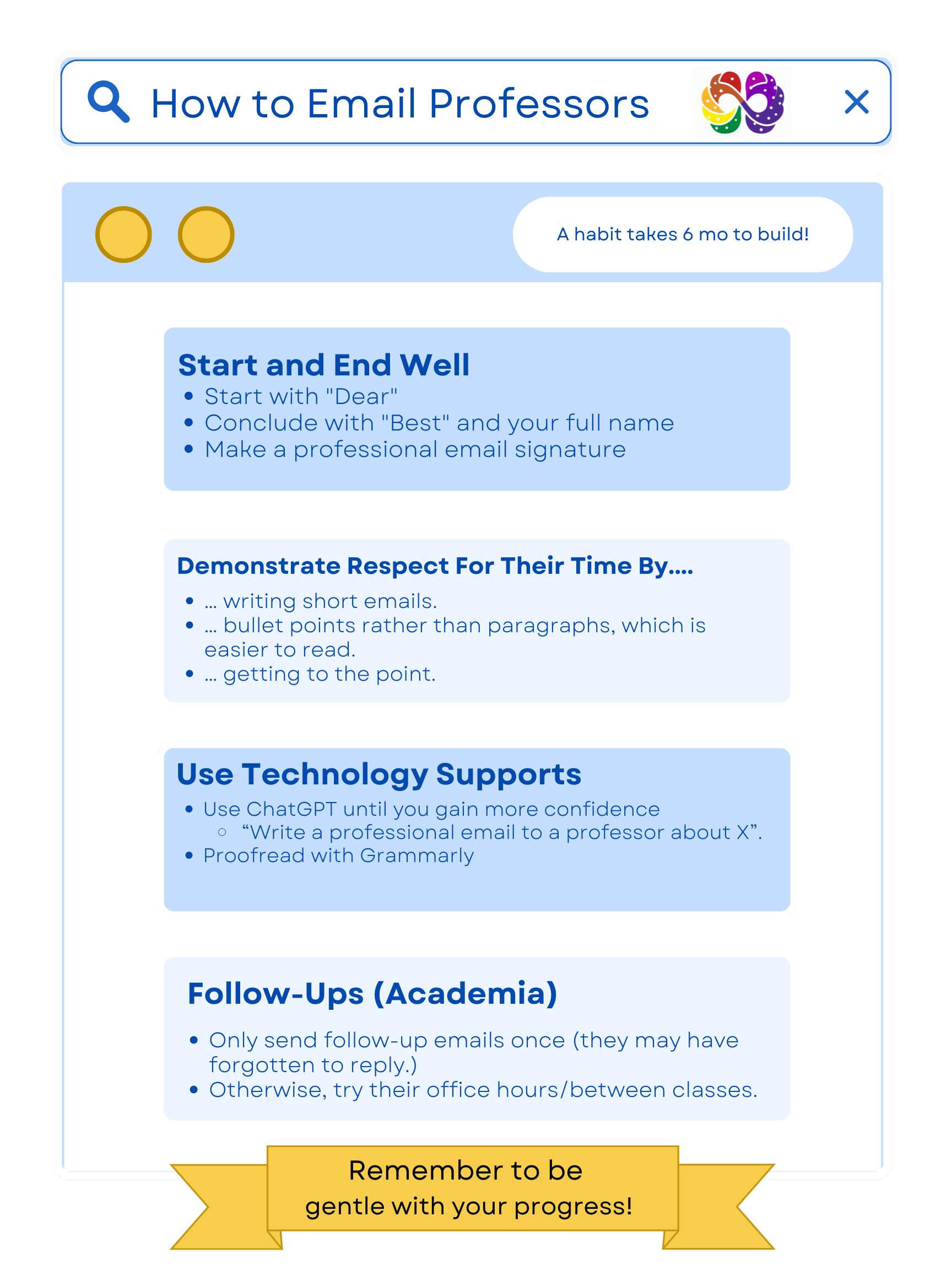University Professionalism
Many neurodivergent students struggle with the transition to university because we may not understand what is expected of us behaviourally. These are some of the secret rules that can help you make a better impression on potential supervisors and references.

All in all, these behaviours are generally signals that professors are likely to interpret as a communication of respect. If you feel comfortable doing so, it can truly help to pick up these habits.
How We Dress
- Not wearing pajamas to class.1
- This is a very American concept.
- Not dressing more formally than your professor.
How We Speak

- Formalize your emails with the “Formalizer” by Goblin.tools. Get a concrete explanation demo here.
- Focus on what your strengths are.
- It is important to avoid disclosing your insecurities because a professor is likely to believe you, even if you’re being too tough on yourself.
- Verbally disclose your strengths when possible, especially when you are feeling better. This aids the other person navigate how to interpret your neurodivergence. Just be careful to avoid coming off as arrogant by saying “I have been told I am X.”
- Being careful about what you say between classes, lest your professor overhears you.
- Ask questions to understand the material, rather than getting points.
- Show respect for their time by…
- Coming to office hours with notes written down to show how organized you are.2
- The only exception is if you have an impression that they appear in need of company/desire to mentor you.
- If you know they have a class right before office hours, ask if they need five minutes to rest before jumping in. They are older than you, and we often underestimate how exhausting it is for an older person to lecture for over an hour.
- Go to office hours to ask them about their research; take an interest in it.
Writing Emails
Learning to write formal emails in university can improve many of your social interactions while preparing you for work incrementally with healthy habits. Professors will likely see this as you showing them a sign of respect, rather than being distant or cold. Many of these do require executive functioning, so go one step at a time. Invest in building habits that work autonomously.

Introduction or Signature
- Always begin a written correspondence with a professor by calling them by their last name; “Prof. X” or simply “Professor” works over email.
- When they reply, use their signature going forward whether it is…
- Professor
- Prof/Dr. X
- Their first name
- If your professor signs their name with their initials or their full name, continue calling them by their last name:
- Prof. X
- Professor X
- Professor
- When they reply, use their signature going forward whether it is…
- If you use Calendly, you can link it to your email signature!
- Of course, a Grammarly plugin is not perfect, so you can also consider disclosing your barrier so that your disability will not label you as someone who is careless.
